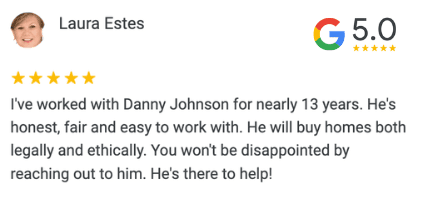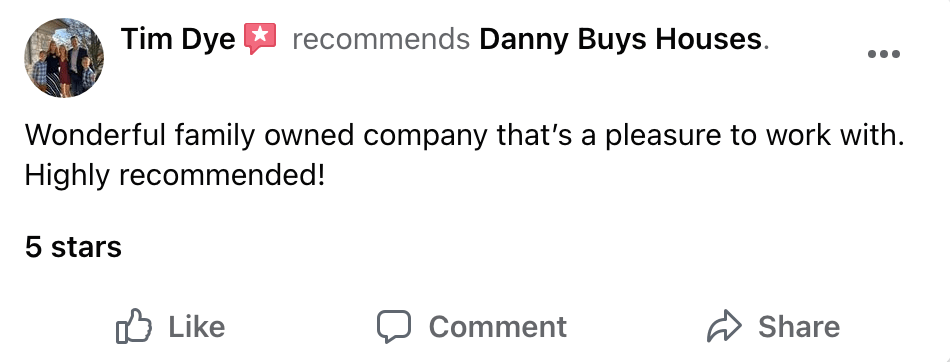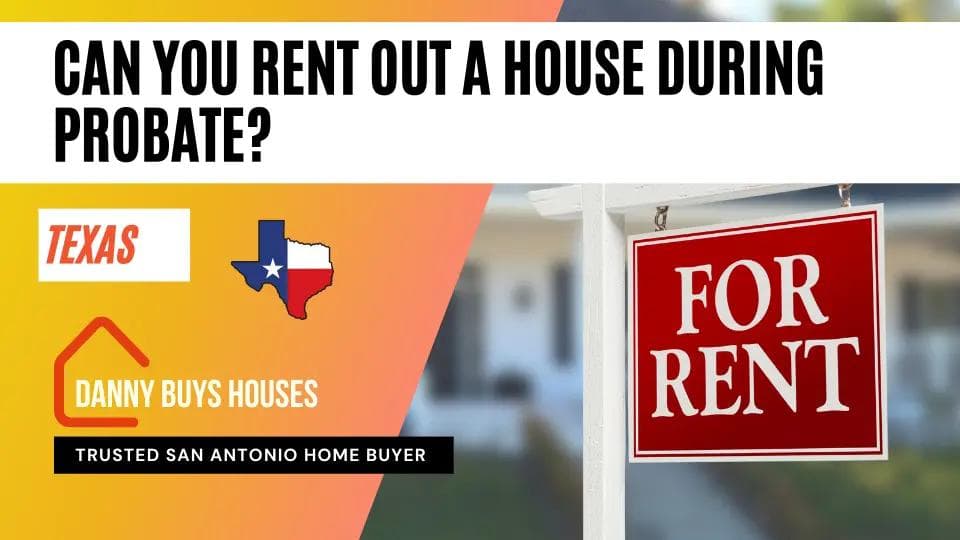
Renting Out a House During Probate: Smart Move or Big Mistake?
By Danny Johnson | Updated 9/5/2024, 8:02:13 AM
Considering renting out a house during probate? Discover the pros and cons for heirs and executors, plus expert tips for navigating the rental process smoothly.
- Key Takeaways
- Can You Rent Out a House During Probate?
- Pros and Cons of Renting Out a House During Probate
- Pros of Renting Out a Home During Probate
- Cons of Renting the Property During Probate
- Legal and Financial Considerations for Renting During Probate
- Managing Rental Income and Expenses
- Compliance with Landlord-Tenant Laws
- Tax Implications of Rental Income
- Conclusion: Weighing the Pros and Cons of Renting During Probate
🗂 Table of Contents
Inheriting a house that is going through probate? Thinking about renting the house out but not sure if that is possible during probate? It's a big decision that can affect the estate's value and the probate process. Executors must choose wisely when deciding what to do with real property the estate owns. Let's dig into the details to determine whether this is the right choice for you and for any beneficiary.
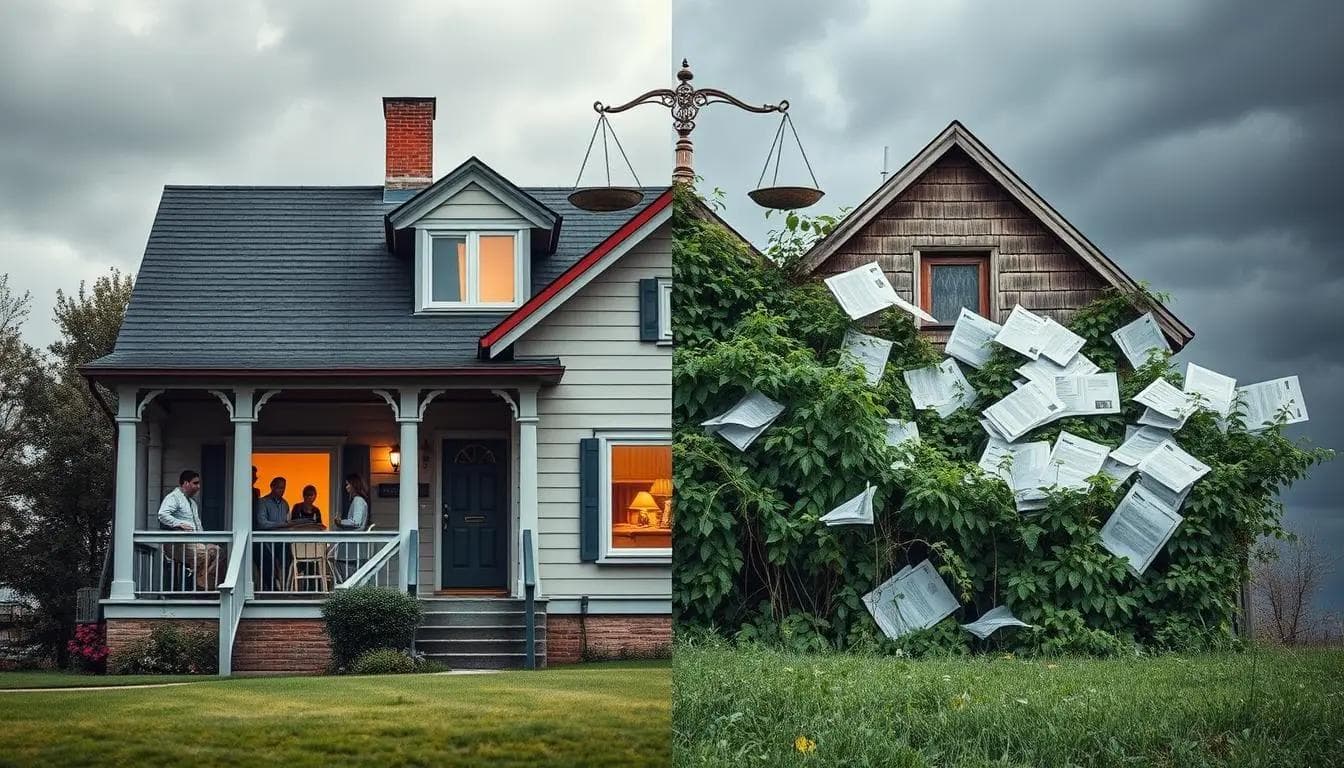
Probate in real estate is the legal process of settling someone's estate that has a house after they pass away. It can be complex and slow. There are a lot of probate laws governing the process. With many Americans lacking a Will or Estate Plan, probate can be even harder. Renting out the property might seem like a good way to make money during this time. But is it the best choice and in the best interest of the heirs?
Deciding to rent a house during probate is not easy because you must think about:
- legal rules
- money matters
- what the deceased wanted
You might need court approval and must consider how rental income affects the estate. Also, you'll have to follow landlord-tenant laws and manage the property.
Your other option is to sell the house. For this option, be aware that we buy property fast in San Antonio, TX and can make a cash offer to buy the house.
Key Takeaways
- Renting during probate requires careful consideration of legal and financial factors
- Court approval is often needed to rent out a probate property
- Executors must manage rental income and property expenses
- Compliance with local landlord-tenant laws is crucial
- The decision to rent can impact the duration and complexity of the probate process
- Rental income must be reported to the probate court
Can You Rent Out a House During Probate?
When an owner dies, what happens to the house? It goes into probate and the executor or administrator has a choice as to what to do with it.
The executor may rent out a house that is a part of the estate assets, but must ensure compliance with probate laws. They manage the estate and can rent out the property if it's good for the estate.
The probate process can take over a year. Keeping the property empty might not be wise financially. Who is responsible for mortgage payments during probate? The estate will need to make payments. We have seen cases where probate dragged on and the estate was not able to cover the mortgage payments and property taxes. Renting it out can bring in money and cover upkeep costs.
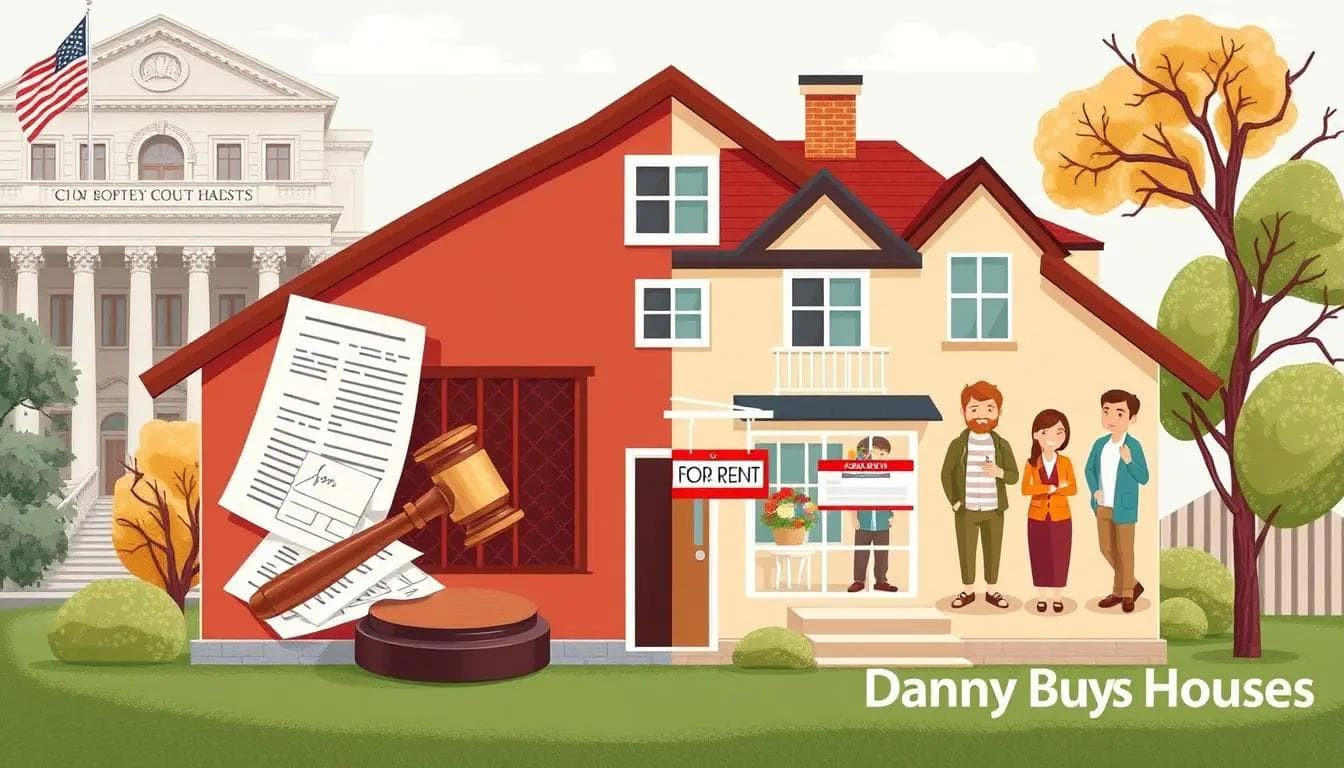
Before starting any rental plans, the executor may need to get court approval depending on the length of the lease. This makes sure the rental fits with what the deceased wanted and helps the estate. It's important to talk to a legal professional to understand the legal side of renting a house in probate.
According to Texas Estate Codes, Title 2, Subtitle H, Chapter 357:
"Sec. 357.001. RENTING ESTATE PROPERTY WITHOUT COURT ORDER. (a) The personal representative of an estate, without a court order, may rent any of the estate property for one year or less, at public auction or privately, as is considered to be in the best interest of the estate.
(b) On the sworn complaint of any person interested in the estate, the court shall require a personal representative who, without a court order, rents estate property to account to the estate for the reasonable value of the rent of the property, to be ascertained by the court on satisfactory evidence."
When thinking about rental plans, the executor must:
- Keep personal and estate money separate
- Manage tenant relations well
- Make sure the property is well-maintained
- Handle rental income as the law says
By doing these things and getting the right approvals, renting out a house during probate can be a good choice. It brings in money, keeps the property in good shape, and might even increase its value.
Pros and Cons of Renting Out a House During Probate
Renting out a property in probate has both good and bad sides. It can bring in money, but it also makes things more complicated. We'll look at the benefits and drawbacks to help you decide.
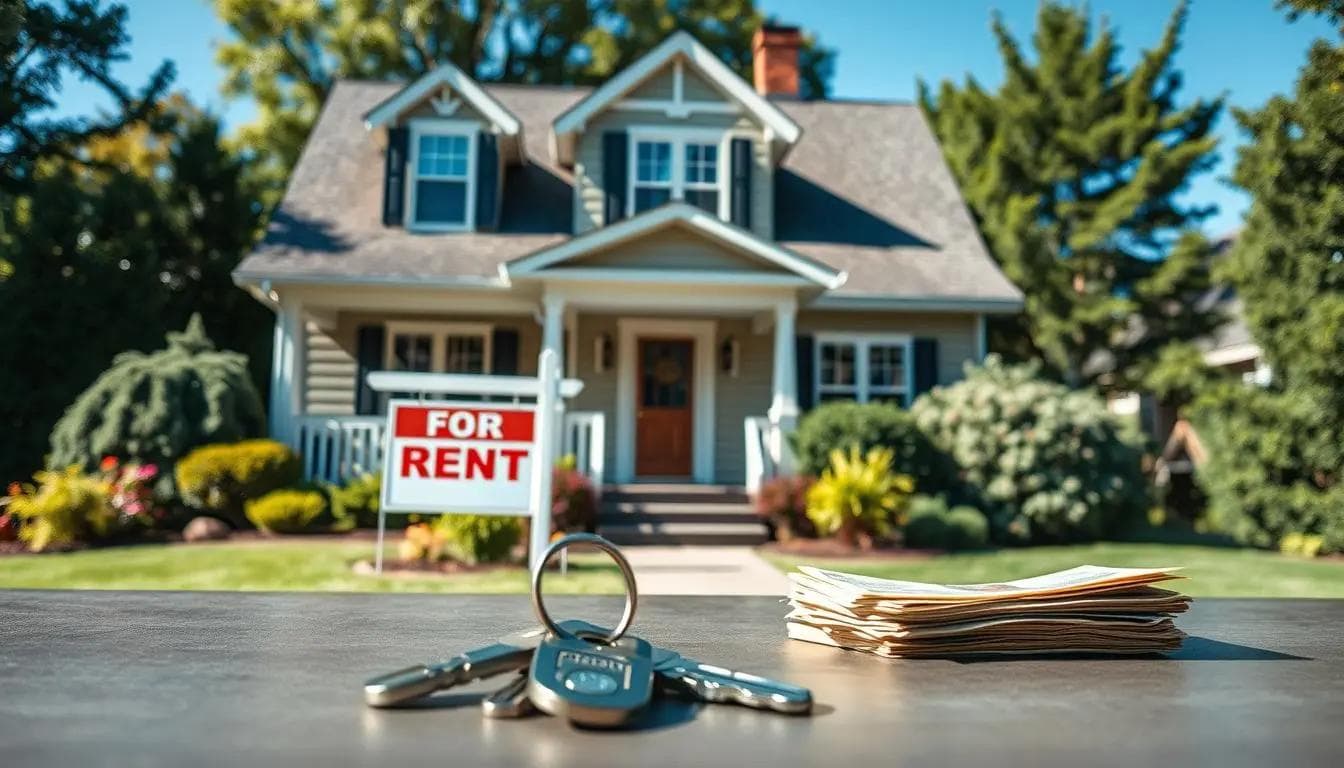
Pros of Renting Out a Home During Probate
Renting can be a big help during probate. It covers costs like estate expenses and keeping up the property. This steady income is important if probate takes a long time, which can be several months or years in Texas.
Renting also keeps the property in good shape. Homes with people living in them usually stay in better condition. This is important if you plan to sell the property later.
- Covers estate expenses
- Maintains property condition
- Potential increase in property value
Cons of Renting the Property During Probate
But, renting has its downsides. It brings new duties like managing the property and dealing with tenants. You'll need to handle repairs and follow the law, which can be hard, especially when you're already dealing with probate.
Taxes are another thing to think about. You'll have to pay taxes on the rental income. But, you might be able to deduct some costs like repairs and legal fees.
You will need to clean out the items from the house after someone passes before you can rent it out. This can be a difficult and emotionally charge task.
Whether to rent during probate depends on your situation. Think about the estate's money needs, the property's state, and if you can handle the rental tasks. Talking to a probate expert can help you make the right choices.
Legal and Financial Considerations for Renting During Probate
Renting out a house during probate involves legal and financial rules that need careful attention. You must follow specific steps and rules for an estate during probate.
Managing Rental Income and Expenses
Managing money well during a probate proceeding is important, especially with inherited property. If you choose to rent out probate property, you must tell the court about rental income and might have to pay estate taxes. The executor should keep detailed records of all money coming in and going out from the property.
Compliance with Landlord-Tenant Laws
Following local landlord-tenant laws is a must. In Texas, landlords can take a tenant's property for unpaid rent. It's important to know and follow these laws to avoid legal problems.
Tax Implications of Rental Income
Rental income during probate is taxed. The tax rates vary, and there might be deductions. It's key to understand these taxes for good financial planning during probate.
- Conduct thorough background checks on potential tenants
- Prepare the property by addressing maintenance issues
- Advertise the rental property effectively
- Comply with all relevant laws to avoid fines or legal action
Handling legal and financial matters during probate needs expert advice. Talking to professionals who know about probate court, rental agreements, and estate taxes is helpful. They can ensure you follow the law and manage your finances well during probate.
Conclusion: Weighing the Pros and Cons of Renting During Probate
Renting a house during probate is a complex choice. Executors need to think about the benefits and the legal and financial challenges. Renting can provide a steady income to cover expenses during the long probate process.
Rental income can keep the property in good shape and might even increase its value. You can deduct taxes on repairs, insurance, and mortgage interest. But, being a landlord means you have more work. You'll need to screen tenants, keep the property up, and follow the law.
It's important to get legal advice to make sure you're doing the right thing for the estate. Financial advisors can look at the long-term effects of renting versus selling. The key is to make choices that are best for the estate, considering the market, the property's state, and everyone's wishes.
Renting during probate has its ups and downs. With careful thought and expert advice, executors can make choices that help the estate and respect the deceased's wishes.
Renting isn't your only option. Selling a house in probate is also an option. This way the estate can receive proceeds from the sale and avoid having the holding costs of the property. There are legal requirements, but the process is pretty straight forward.
If you would like to get a cash offer for property owned by the estate, give Danny Buys Houses a call. We would love to help by making a no-obligation cash offer to the estate for the property.

AUTHOR
Danny Johnson
Owner and Founder at Danny Buys Houses
Danny Johnson is an experienced real estate investor who has been buying houses for cash since 2003. As owner of Danny Buys Houses, Danny's goal is to help homeowners sell their house fast, regardless of the situation, so they can move on with their life.
Danny has been featured in publications such as Forbes, Realtor.com, BiggerPockets, Yahoo Finance, US News, and more. He is also the author of the book 'Flipping Houses Exposed'.


